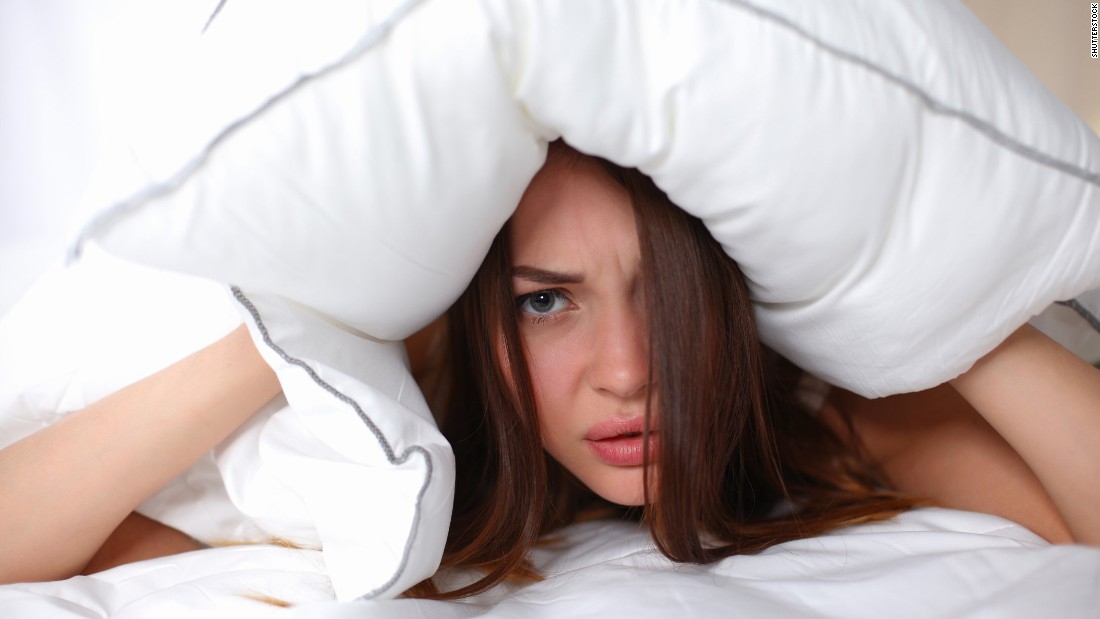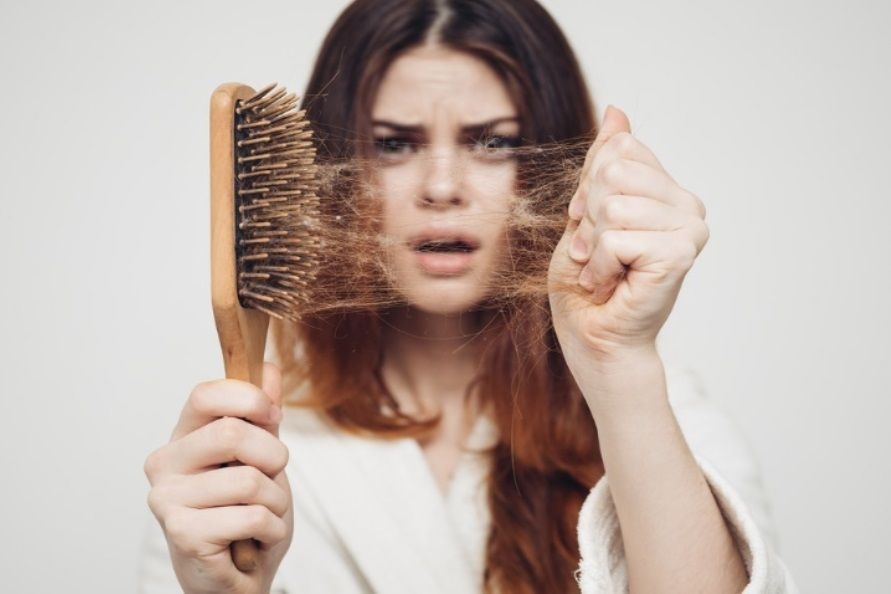Do you have trouble sleeping? Sleeping less and less has become a habit for a lot of us in recent years. We assume it is a normal consequence of the fast-paced life that we experience as there is barely any time left to think about the consequences of our lack of sleep. Around one-third of the adult population suffers from insomnia at some point in their lives; this is alarming if we consider how much our body gets affected when we don't sleep enough.
Sleep is just as important as having a healthy diet and exercising. Those are the things that will provide your body with the necessary tools to have a healthy life. So when our body gets deprived of one of those things, the consequences are reflected in our health. Our immune system gets weaker, and we notice changes in our bodies. Are you experiencing loss of hair? Not enough sleep may be the cause of that.

What is insomnia?
Insomnia is a type of sleep disorder. Insomnia causes people to have trouble falling asleep or staying asleep throughout the night; however, some people have trouble with both things. People that have insomnia don't usually have that refreshing feeling in the morning. Their day starts with fatigue and a lack of energy. Even though insomnia is one of the most common sleeping problems, it doesn't mean that it isn't a sign of concern.
There are two types of insomnia, primary and secondary insomnia. Primary insomnia has no connections with any other health issues. Secondary insomnia can be triggered by some diseases such as mental health illnesses such as anxiety and depression, substance abuse,diabetes, andsleep apnea. Both types of insomnia can last at least 3 months.
Some of the most common symptoms of insomnia are:
·Waking up too early
·Waking up feeling exhausted
·Experiencing trouble falling or even staying asleep throughout the night
·Having trouble with concentration and memory
When you don't sleep enough, you'll probably experience fatigue, an increase of irritability, and mood changes.
Things that can cause primary insomnia:
·Increase of stress
·Changes in sleeping patterns
Things that can cause secondary insomnia:
·Mental health issues like depression or anxiety
·Some medications
·Emotional or physical pain caused by trauma as well as chronic pain
·Substance abuse
·Other sleeping disorder like sleep apnea

How can insomnia cause hair loss?
Insomnia itself won't cause hair loss, but it will affect your body's performance. By not sleeping enough, your body won't be able to perform its best. There are two main ways that the lack of sleep will cause hair loss.
The lack of human growth hormone (HGH)
When we don't sleep enough and go into sleep deprivation, our body immediately gets affected. Sleep deprivation impacts the levels of hormones that our bodies produce, and that can cause hair loss. Human growth hormone or HGH is produced during sleep cycles. For someone who has insomnia, the body produces less HGH, causing many health issues and the thinning of the hair, which can cause it to fall. By increasing your sleep, you will help your body produce more HGH; this can help stop the hair from getting thinner, preventing hair loss.
Emotional and physical stress
Another major cause that can cause hair loss is stress. Sleep deprivation can increase emotional and physical stress, which can lead to telogen effluvium. This condition is one of the most common causes of hair loss. Someone who develops telogen effluvium can be at risk of losing a significant amount of hair. Telogen effluvium can be caused by a change in your hormones, diet, and medication such as antidepressants. This condition may not be visible for at least 2 months.
The good news is that both of those causes for hair loss are reversible, and your hair can grow back. If you implement changes such as sleeping enough, reducing stress and eating healthily, you should have no problem providing the right conditions for healthy hair.
How to improve your sleep?
The main thing that you have to change is the quality and quantity of your sleep. However, there can be many factors that disturb your sleep, but the good news is that you can get your beautiful hair back without any more hair loss. There are a few ways that you can improve your sleep. You can take mediation, which will be recommended by your doctor. You can also try some non-medicine methods and change your sleep hygiene, which is basically lifestyle changes that can help you sleep faster and longer.
Taking medication for insomnia
It's important to mention that you should only consider taking medication if your doctor recommends it. Avoid self-medicating as many of the over counter sleep medication holds many side effects. Only a doctor should prescribe you the right medication for you if you want to try this.
The most common medications prescribed to treat insomnia are eszopiclone and zolpidem. The only downside is that sleeping medications come with heavy side effects, so again, talk to your doctor about your options first. Or consider trying a natural option first.
Non-medicine methods to help you sleep better
If you don't want to take medication, then there are alternative options that can still improve your sleep. Things like drinking warm milk before bed are still a very trusted trick to make you sleep faster. But there are other things that you can use to aid you with better night sleep.
Meditation
Meditation is incredibly beneficial for your health as well as decreasing stress considerably. Meditation is the most efficient natural method to fight insomnia. In fact, there is a study that confirms that meditation can improve your sleep quality and help you to fall asleep faster and stay asleep for longer. Meditation can also help with anxiety, depression, and physical pain.
Essential Oils
Aromatherapy can also help you to improve your sleep. By inhaling it or applying it to your skin, you can use this natural method to help you sleep faster. A few specific essential oils will help you, such as lavender, cedarwood, or roman chamomile. A review of more than 10 studies concluded that applying essential oils can promote sleep. In fact, there is a study that remarks on how lavender essential oil is incredibly beneficial for the quality of your sleep.